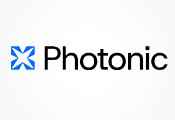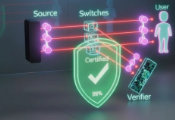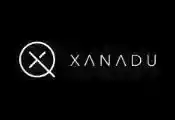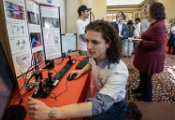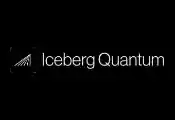SEALSQ Post-Quantum Technology To Safeguard Digital Identities and Documents in Collaboration With WISeID.COM
Geneva, Switzerland, December 16, 2024 -- SEALSQ Corp ("SEALSQ" or "Company"), a company that focuses on developing and selling Semiconductors, PKI and Post-Quantum technology hardware and software products, today announced the integration of its advanced Post-Quantum Cryptography (PQC) technology to secure electronic identities and documents via a strategic initiative, developed in collaboration with WISeID.COM developed by SEALSQ’s parent company, WISeKey International Holding Ltd. This integration is set to redefine the landscape of identity protection, ensuring long-term security for documents such as electronic ID (eID) cards, which typically remain in use for over a decade.
In today’s rapidly evolving technological environment, the rise of quantum computing presents both opportunities and challenges. While quantum technology holds the potential for breakthroughs in fields like medicine, logistics, and artificial intelligence, it also threatens to undermine current cryptographic systems that secure digital identities and communications. Algorithms such as RSA (Rivest Shamir Adelman) and ECC (Elliptic Curve Cryptography)—which are widely used to protect sensitive data—are at risk of being rendered obsolete by the immense computational power of quantum computers. As a result, security protocols like ECDSA (Elliptic Curve Digital Signature Algorithm) and ECDH (Elliptic Curve Diffie-Hellman), which form the backbone of secure communications, could be compromised, exposing critical infrastructures, personal identities, and confidential information to unprecedented risks.
To address these challenges, SEALSQ has been at the forefront of developing Post-Quantum Cryptography. Unlike quantum computing itself, PQC operates on traditional computing systems, ensuring a smooth and accessible transition for organizations and individuals reliant on existing encryption methods. By employing new mathematical principles that are resistant to quantum attacks, SEALSQ’s PQC solutions are uniquely designed to work efficiently on compact devices, including security chips with limited storage capacity. This innovative approach ensures that electronic identities, documents, and communications remain secure, even as quantum technologies advance.
Implementing PQC, however, requires more than just new algorithms. The entire digital infrastructure—including communication protocols, identity documents, and background systems—must be adapted to support post-quantum security. This transition demands collaboration among technology providers, policymakers, and industry stakeholders to ensure a seamless migration. SEALSQ is addressing this need by advocating for crypto-agility, which allows devices and systems to support multiple cryptographic algorithms. This adaptability is crucial for maintaining security as quantum computing becomes more prevalent.
One area where crypto-agility is particularly important is in the management of TLS certificates, which are essential for secure internet communications. SEALSQ is developing solutions to adapt certificate issuance and lifecycle management processes to accommodate post-quantum algorithms. These efforts include enabling Certificate Authorities (CAs) to issue and validate PQC-compliant certificates, updating certificate management tools for compatibility with new standards, and implementing advanced monitoring systems to track and secure certificates in real-time.
In tandem with these advancements, SEALSQ’s partnership with WISeID.COM enhances digital identity protection services for individuals and organizations. WISeID.COM offers a suite of tools designed to prevent identity theft and protect personal information in today’s hyper-connected digital world. One of the standout features of WISeID.COM is its free identity validation service, which allows users to verify their real identity by using a webcam to capture national IDs, driver’s licenses, or passports. This verification process leverages advanced face recognition technology to ensure authenticity.
In addition, WISeID.COM provides a range of digital certificates tailored to different user needs. Free basic certificates are available to all users, valid for three months and designed to protect email communications. For those requiring longer-term security, WISeID offers basic certificates with a two-year validity period. Advanced certificates add an extra layer of assurance by including the user’s name and country, while advanced PRO certificates are suitable for professional use and include company information. These certificates help users secure their communications and documents, providing confidence and authenticity in digital interactions.
Furthermore, WISeID.COM offers a new document signing service that simplifies the process of signing PDF documents. Users can sign documents directly from their computers or mobile devices without having to install certificates manually. The platform automatically generates secure, single-use certificates, making it easy for users to sign documents while maintaining high levels of security. This service is free, provided the user has a valid WISeID account and has completed identity verification.
For businesses, WISeID.COM offers corporate accounts that streamline identity verification and certificate management for employees and customers. Companies can administer user accounts, manage certificates centrally, and access shared signature packages for document signing. This enterprise-level service reduces administrative complexity and enhances security across the organization.
With SEALSQ’s groundbreaking post-quantum Cryptography technology and WISeID.COM’s enhanced digital identity services, organizations and individuals can confidently navigate the challenges of the quantum era. This partnership is not just about innovation; it is about shaping a secure digital future where privacy, identity, and data integrity are preserved against even the most advanced threats.

